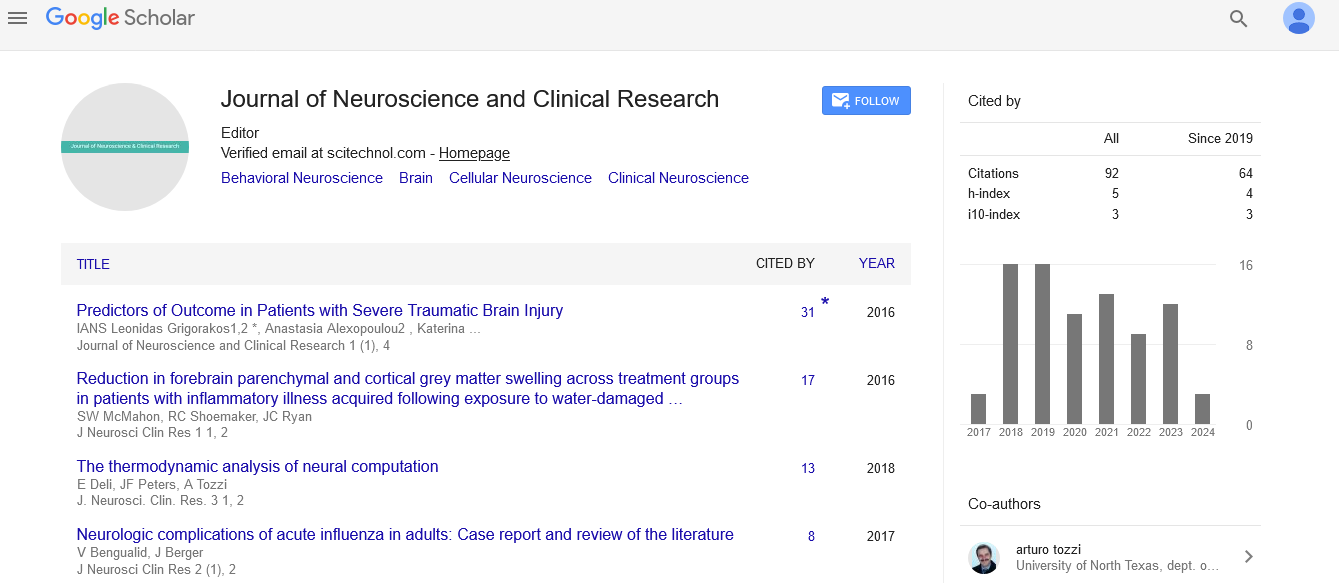Dual activity of PAC: Neurotrophicity and neuroprotection against β amyloid peptides causing Alzheimer’s disease
Fadia El Bitar, Sara Abdulaziz, Ibrahim Al Jammaz and Alyaa Aydol
King Faisal Specialist Hospital and Research Centre, Saudi Arabia
: J Neurosci Clin Res
Abstract
Alzheimer’s Disease (AD) is the most common cause of dementia in the elderly. The toxicity of β-amyloid (Aβ) peptides is thought to be involved in neuronal damage in this pathology. Multiple studies focused on role of neuroprotective molecules to attenuate the toxic consequences of Aβ peptides in the development of AD. In the present work, our objective is to investigate in vitro if PAC which is the synthetic analogue of curcumin displays neuroprotective activity against Aβ peptide-induced neurotoxicity, using rat neuroblastoma B104 as cell culture model. Our results showed that PAC is not neurotoxic per se. In addition, PAC showed a striking neurotrophic activity in cells cultured at low density. This neuronal outgrowth increases importantly with increasing days of culture starting from 2 folds increase at day 2 to 3 folds increase at day 5. The number of neurites per cell rises also in presence of PAC. Most importantly, we demonstrate the capacity of PAC to correct sAβ25-35 neurotoxicity. The percentage of cell viability increases significantly by PAC at 0.5 μM in presence of sAβ 25-35 compared to that in presence of the peptide alone. Interestingly, our neurotrophic and neuroprotection studies showed the PAC was 20 times more efficient than curcumin. Both PAC and curcumin displayed an effect on cell-cell interaction. Thus, our results revealed neuroprotective properties of PAC against Aβ peptide. The continuity in examining the mechanism(s) underlying PAC activity is promising towards identifying efficient therapy for AD.
Biography
E-mail: fbitar@kfshrc.edu.sa
 Spanish
Spanish  Chinese
Chinese  Russian
Russian  German
German  French
French  Japanese
Japanese  Portuguese
Portuguese  Hindi
Hindi 